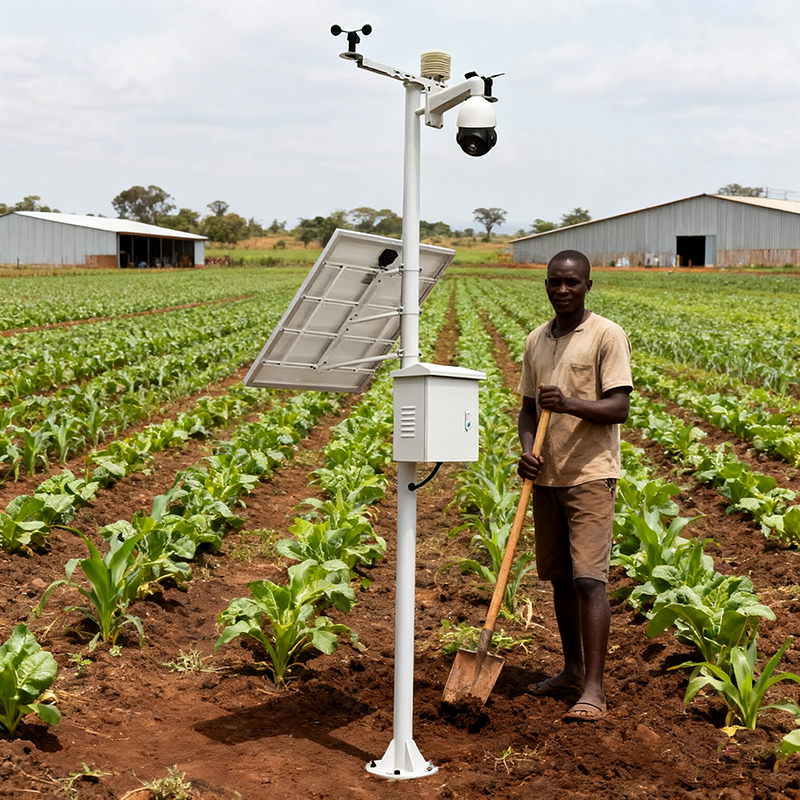According to the latest report released by the African Meteorological Association, South Africa has become the country with the largest number of meteorological stations deployed on the African continent. Over 800 meteorological monitoring stations of various types have been established across the country, building the most complete meteorological data collection network in Africa, providing important support for regional meteorological forecasting and climate change research.
The national meteorological monitoring network has been fully established
The South African Meteorological Service recently announced that a major breakthrough has been achieved in the construction of the national automatic weather station network. “We have achieved full coverage of weather stations in nine provinces across the country,” said John Best, director of the South African Meteorological Service. “The real-time weather data provided by these automatic weather stations has increased the accuracy of our weather forecasts by 35%, especially in extreme weather warnings.”
Advanced equipment enhances monitoring accuracy
The new generation of meteorological monitoring equipment introduced by South Africa integrates high-precision meteorological sensors and can monitor more than twenty meteorological elements in real time, such as temperature, humidity, wind speed, wind direction, rainfall and sunlight intensity. “The professional meteorological instruments we are equipped with include the most advanced temperature sensors and digital acquisition systems,” said Professor Sarah Van der Waat, director of the Meteorological Institute at the University of Cape Town. “These devices provide unprecedented data support for climate monitoring and research.”
The diversified application has achieved remarkable results
The South African meteorological station network has been widely applied in multiple key fields such as agriculture, aviation and shipping. In Pumalanga Province, agricultural meteorological stations provide farmers with accurate weather forecast services. “Meteorological monitoring data helps us arrange irrigation time reasonably, and the water-saving effect has reached 20%,” said local farmer Peters. At the Port of Durban, the port meteorological observation station provides precise Marine meteorological data for ships entering and leaving the port, significantly enhancing shipping safety.
The capacity for disaster prevention and mitigation has been significantly enhanced
By establishing a dense meteorological monitoring network, South Africa\’s disaster early warning capacity has been significantly enhanced. “We have established a flood and drought early warning system by using real-time meteorological data collected by automatic weather stations,” said Mbeki, an expert from the National Center for Disaster Reduction. “Accurate climate monitoring enables us to issue disaster warnings 72 hours in advance, effectively reducing the loss of life and property.”
International cooperation promotes technological upgrading
South Africa maintains close cooperation with international institutions such as the World Meteorological Organization and the European Centre for Medium-Range Weather Forecasts, and continuously promotes the upgrade of its meteorological station network. “We are deploying a new generation of meteorological instruments, including satellite data transmission systems and solar-powered equipment,” said Van Niuk, the head of the international cooperation project. “These innovations will make our meteorological observation stations more intelligent and sustainable.”
Future development plan
According to South Africa\’s meteorological development Strategy for 2024-2028, the government plans to add 300 new automatic weather stations, with a focus on enhancing monitoring capabilities in rural areas and border regions. “We will achieve full coverage of meteorological monitoring in all municipal administrative regions across the country,” said James Molloy, technical director of the South African Meteorological Service. “This vast network of meteorological stations will become a model for meteorological modernization in Africa.”
Industry experts believe that South Africa\’s successful experience in the construction of meteorological stations provides important references for other African countries. As the impact of climate change intensifies, a well-developed meteorological monitoring network will become an important infrastructure for African countries to deal with extreme weather and ensure food security.
Post time: Oct-13-2025


